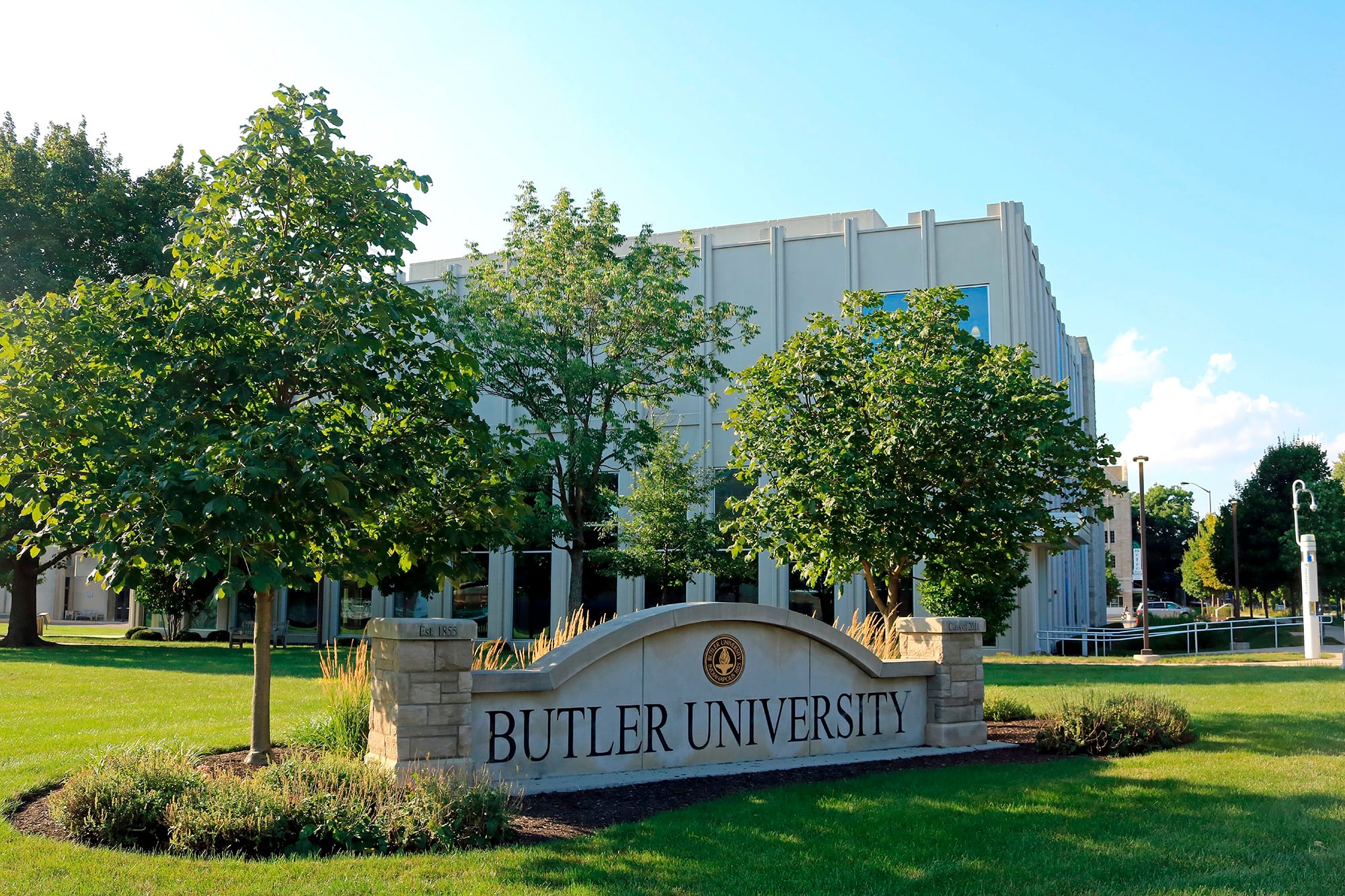Sign up for Chalkbeat Indiana’s free daily newsletter to keep up with Indianapolis Public Schools, Marion County’s township districts, and statewide education news.
Students can earn an associate degree from Butler University at no cost to them, and continue on to earn a bachelor’s degree for $10,000, thanks to a new program.
On Friday, Butler announced it is opening a new two-year college on campus that will offer associate degrees in business and allied health. The program will start enrolling students in fall 2025.
The program is focused on Indianapolis-area students from low-income backgrounds, including students who are undocumented. The university said in its Friday announcement that it wants to make college more accessible and affordable for previously underserved students, and help them navigate the college-going process.
The program is designed as a commuter school, and its students will have access to the same resources and amenities as other Butler students, officials said Friday. However, students in the two-year program will also have additional support, including small classes, dedicated faculty advisors, mental health services, and financial aid, per a news release.
A majority of qualifying students will also qualify for Federal Pell Grants and the state’s Frank O’Bannon Scholarship. Those two sources of aid will cover the cost of the two-year degree, the university said.
Students who earn a 3.0 or higher GPA in their two-year program automatically qualify to continue at Butler to earn a four-year degree. Students with a lower GPA will be considered on a case-by-case basis, per the university.
If students continue work towards their bachelor’s degree, the Pell and O’Bannon funds will — along with aid from Butler — keep costs to the student to a maximum of $10,000, according to Butler.
Butler’s announcement is the latest effort from Indiana’s institutions of higher education to improve the state’s college-going rate. For the Class of 2021, the latest data available, the college-going rate was about 53%. That’s roughly the same rate as for the Class of 2020; the rate fell for several years before the COVID-19 pandemic.
Data from the Indiana Commission for Higher Education released this fall showed enrollment in higher education increased by roughly 4,700 students from a year ago. That increase included a roughly 3,200-student increase in two-year schools.
Butler is launching its new college in partnership with the national nonprofit organization Come to Believe Network. The organization works to help colleges and universities start two-year programs as a pathway for students to earn associate and bachelor’s degrees, per a news release.
Butler will be Come to Believe Network’s third partner, joining Loyola University Chicago and University of St. Thomas – Minnesota. More than 80% of graduates from this model transfer to a four-year college or university, and 75% earn a bachelor’s degree in addition to their two-year degree, Butler University said.
Come to Believe credits that success in part to the mix of students having access to the amenities of the four-year campus with added support.
Across the state, Ivy Tech Community College and Vincennes University, which are two-year campuses, offer students the most options for two-year degrees.
However, several other universities and colleges offer a smaller number of associate degrees, per the Commission for Higher Education: Ball State University, Indiana University, IUPUI, Indiana Wesleyan University, Purdue University, the University of Saint Francis, and the University of Southern Indiana.
MJ Slaby oversees Chalkbeat Indiana’s coverage as bureau chief. She also covers access to higher education and Warren Township Schools. Contact MJ at mslaby@chalkbeat.org.






